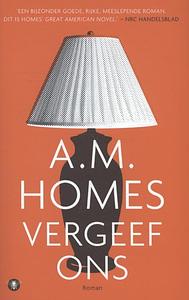You need to sign in or sign up before continuing.
Take a photo of a barcode or cover
Wasn't sure where this was going and found no characters with whom I could really relate. Yet found this novel as a whole strangely compelling.
Initially compelling and gripping, then disturbing, then puzzling, then simply baffling as to who these people are and what the point of the story is (is there to be one?). Lots and lots of plot, I suppose trying to present a smorgasbord of human character and situation, but all tied down to this one Jewishy New Yorky environment (plus South Africa!). The South Africa Bar Mitzvah segment was a jumped-the-shark moment for me, a real tonal shift (what the author did on her vacation?), and the end was just cloyingly sweet and aw shucks. So, overall — it was often enjoyable and entertaining, but not terribly believable and too much like a madcap tv sitcom.
It is interesting how one event can be the impetus to change the lives of so many people. This is a story about Harry Silver who has always lived in the shadow of his brother. He is suddenly drawn into his brother's life when his brother is in a car accident that kills two people, finds himself in his brother's bed--with his brother's wife and then later becomes legal guardian of his brother's children despite his infidelity. These events act as a catalyst to change Harry's life; a life that was just waiting for a change. Harry bumbles his way through them all, but finds his true self along the way.
Interesting book. I wrote about it on my blog http://cyberbosanka.me/hoce-li-nam-biti-oprosteno-e-m-houms-knjiga-zbog-koje-cete-razmisliti-o-odnosima-sa-ljudima/
I think this is the furthest I’ve ever been into a book by an author i adore and then decided i couldn’t finish. i just flat out don’t want to continue. 285 pages in, I’m only halfway done, and the thought of reading another 285 pages makes me shudder.
This book needed a good editor. The characters aren’t that much fun, the hi jinx not so wacky, and the storyline is taking forever. Too bad. I had higher hopes.
This book needed a good editor. The characters aren’t that much fun, the hi jinx not so wacky, and the storyline is taking forever. Too bad. I had higher hopes.
I love A.M. Homes. Her books are wonderfully quirky. This story is no exception. It is about a man trying to make amends after a very strange situation that leaves him in charge of his niece and nephew. It's bizarre yet amazing. It's funny and heartfelt. I highly recommend it.
This Women’s Prize winner—one of the few left over that I hadn’t read—starts off violent, surreal and comedic, and continues in that vein for 480 pages. Self-effacing Nixon scholar Harold Silver is at a family Thanksgiving, at which his bombastic and aggressive brother George is holding court. Helping to clear the table and organise the leftovers, he finds himself being kissed by his sister-in-law, Jane. Almost immediately afterwards, George kills two people in a car accident that may not have really been an accident, as such. In the aftermath, while George is being psychiatrically evaluated, Harold and Jane begin an affair, but George manages to escape the hospital, returns home, and bludgeons his wife so brutally with a lamp that she dies a week later. With criminal charges pending against his brother, his sister-in-law dead, and his high-flying corporate wife divorcing him in disgust, Harold finds himself in charge of his niece and nephew, pre-teens Nate and Ashley; the family home in Westchester, New York; an elderly dog named Tessie and a soon-pregnant cat; and all of the finances.
Nothing about this book is particularly realistic, let’s be clear on that. The children speak and behave like teenagers (leading to a pretty uncomfortable plot point which we’d now call child sexual abuse—not by Harold, though; he’s a genuinely good guy). The number of women who want to have sex with this middle-aged, slightly schlubby professor is wildly implausible. Health crises abound; conversational misunderstandings happen with the regularity of an Adrian Mole book. There’s some really unfortunate weird racial stuff, including a bit of a fixation on Chinese people and what I can only call a "magical Negro” situation. Homes controls it all with tone: Harold is wry, detached, almost permanently bewildered, and clearly pretty deeply traumatised. My read on the surrealism is that it represents what it actually feels like to have your life totally spin out of control. New love, bereavement, life-threatening illness, a family member doing something unspeakably terrible: these things shake up a life like a snowglobe. It does feel absurd. You do find yourself attending a swinger’s party at a mall laser tag place with an almost-stranger (or, you know, some version thereof) and thinking, What the fuck am I doing here?
And despite the nudist-laser-tag interlude, what Harold is doing the most—what he finds himself doing—is parenting. I would say “fatherhood” or “fathering”, but actually, a huge amount of Harold’s work in taking care of his household is gendered as female labour (foreshadowed from page one, as he and Jane tidy the table around his bloviating brother and disengaged wife): going to parents’ day at school, doing laundry, sorting out permission forms and passports for holidays, providing meals, making arrangements for the pets. George, whom we meet several times during the novel, is so toxically masculine it’s a pleasure to get away from him; Harold, by contrast, settles into George’s place in the children’s lives with a gentler touch and a sense of true, weighty responsibility. The novel spans a year, and by its end, there is a family structure back in place: adult, children, even an older generation (though I won’t spoil how this comes about) and an infant one (in the form of the cat’s kittens). Some may find the ending too sickly-sweet, and the book is certainly too long by at least a hundred pages. But I really enjoyed the process by which trauma and tragedy open up a new life and the possibility of fulfilling a paternal role for a man who never thought he deserved such things. May We Be Forgiven is a wild ride, and I can’t imagine it winning the Women’s Prize now, but I’m glad that once upon a time, the world liked a wild ride enough to reward it.
Nothing about this book is particularly realistic, let’s be clear on that. The children speak and behave like teenagers (leading to a pretty uncomfortable plot point which we’d now call child sexual abuse—not by Harold, though; he’s a genuinely good guy). The number of women who want to have sex with this middle-aged, slightly schlubby professor is wildly implausible. Health crises abound; conversational misunderstandings happen with the regularity of an Adrian Mole book. There’s some really unfortunate weird racial stuff, including a bit of a fixation on Chinese people and what I can only call a "magical Negro” situation. Homes controls it all with tone: Harold is wry, detached, almost permanently bewildered, and clearly pretty deeply traumatised. My read on the surrealism is that it represents what it actually feels like to have your life totally spin out of control. New love, bereavement, life-threatening illness, a family member doing something unspeakably terrible: these things shake up a life like a snowglobe. It does feel absurd. You do find yourself attending a swinger’s party at a mall laser tag place with an almost-stranger (or, you know, some version thereof) and thinking, What the fuck am I doing here?
And despite the nudist-laser-tag interlude, what Harold is doing the most—what he finds himself doing—is parenting. I would say “fatherhood” or “fathering”, but actually, a huge amount of Harold’s work in taking care of his household is gendered as female labour (foreshadowed from page one, as he and Jane tidy the table around his bloviating brother and disengaged wife): going to parents’ day at school, doing laundry, sorting out permission forms and passports for holidays, providing meals, making arrangements for the pets. George, whom we meet several times during the novel, is so toxically masculine it’s a pleasure to get away from him; Harold, by contrast, settles into George’s place in the children’s lives with a gentler touch and a sense of true, weighty responsibility. The novel spans a year, and by its end, there is a family structure back in place: adult, children, even an older generation (though I won’t spoil how this comes about) and an infant one (in the form of the cat’s kittens). Some may find the ending too sickly-sweet, and the book is certainly too long by at least a hundred pages. But I really enjoyed the process by which trauma and tragedy open up a new life and the possibility of fulfilling a paternal role for a man who never thought he deserved such things. May We Be Forgiven is a wild ride, and I can’t imagine it winning the Women’s Prize now, but I’m glad that once upon a time, the world liked a wild ride enough to reward it.
Now this is a goodread. And it will make a great book club read too. Lots to converse about, likely to arouse a number of emotions and challenge many beliefs.
I had no expectations and absolutely loved this book.
Crumbs, what a ride. After that crazy, explosive opening I thought things would slow down, but there were another 450 pages of madness to follow.
Over time (and being a slow, easily distracted reader, it was a LOT of time for me) I grew to like the narrator, Harry Silver, more and more and actually was quite moved by the way he cared for his niece and nephew, and Tessie the dog. Despite his obsession with Nixon, his various wrongdoings and his penchant for sex with random MILFs, I really enjoyed being in his company and in his mind.
Some unforgettable characters and even more unforgettable events, this book reminded quite a bit of John Irving's writing. I look forward to discussing this at book club later this week.
Over time (and being a slow, easily distracted reader, it was a LOT of time for me) I grew to like the narrator, Harry Silver, more and more and actually was quite moved by the way he cared for his niece and nephew, and Tessie the dog. Despite his obsession with Nixon, his various wrongdoings and his penchant for sex with random MILFs, I really enjoyed being in his company and in his mind.
Some unforgettable characters and even more unforgettable events, this book reminded quite a bit of John Irving's writing. I look forward to discussing this at book club later this week.




